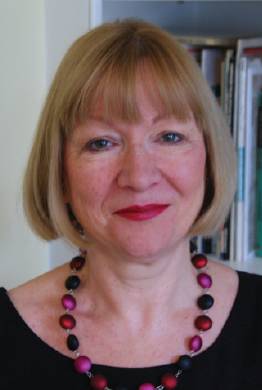myCILEx
Member profile
Marilyn Sparrow responded to CILEx CEO Mandie Lavin’s invitation to members to tell their life story.

About the author
Marilyn Sparrow, FCILEx, JP, BA (Hons), is a consultant in probate at Miller Law Practice, London.
It was a particularly ‘challenging’ district judge at the now closed Clerkenwell County Court in north London, who started me on a career in law. At the time, I was working part-time for a sole practitioner solicitor. My role included applying for one of the first legal aid franchises, and assisting the solicitor on client files, particularly family and personal injury cases. Occasionally, I would need to put forward an application to the district judge in chambers, for example, to have a personal injury award for a minor approved by the court. These applications were heard by the judge in front of the other waiting applicants, who would be representatives from insurance companies, litigants in person, pupil barristers or unqualified people like me, and this particular judge was unpleasant to all of us equally. One day I asked for approval of some course of action, and the judge replied in his usual scathing tone ‘of course you can’t . You must know under so-and-so Act section 10, subsection 2, paragraph 8 … etc.’ I apologised, and went back to the office seething. I - there and then - determined that I would study law and learn all about so-and-so Act section 10, subsection 2, paragraph 8, so I could never be publicly humiliated in that way again.
I started to research the options. I was, at the time, 45, married, with two primary-school age children. I had a degree in English and American Studies, and worked part-time in whatever congenial occupation fitted around the school day and school terms. As a family, we had little spare money. Studying via the distance-learning route with (the then) Institute of Legal Executives seemed ideal. I could go at my own pace, and fit my studying around the rest of my life.
I asked the solicitor for whom I worked if he would pay my fees. He doubted that I would stick to four years’ study - and told me so - but said that he would pay 20% of the fees for the first year’s study and pay 40%, 60% and 80% of the fees for the subsequent years’ study, if I managed to stay the course. And so I began.
I found Part 1 of the course relatively straightforward. I would study after collecting my daughters from school on two or three afternoons a week, and write papers at the weekend and on family holidays. European law and English land law almost invariably had me nodding off to sleep on the sofa; however, I did feel that I was setting a good example to our daughters: that studying, learning and taking exams was a lifelong task, not one confined to school days. When I achieved awards in three of my four Part 1 exams, each of which came with a cheque for £50, this certainly reinforced the benefit of studying as far as our girls were concerned!
For my Part 2 electives, I could leave land law behind and chose tort, employment law, civil law and civil litigation as my specialist subjects. All were relevant to my work at the solicitors’ firm, and with employment law, in particular, so much of the law was new as a result of our membership of the EU, I did not feel disadvantaged compared with the solicitor who had qualified many years before.
By the time the four years’ study had passed, I turned 50, passed my exams to qualify as a member of the then Institute of Legal Executives and changed jobs. Our daughters were now teenagers and could travel to and from secondary school without my services, so I took up a full-time role as practice manager for a firm of criminal defence solicitors; there I worked for the two years’ qualifying period to become a Fellow of the Institute. My knowledge of employment law was certainly relevant as we took on two to four trainee solicitors a year, and their recruitment and training was one of my responsibilities, as were other employment issues among the staff. I had been serving as a justice of the peace (JP) for five years by that time, and sat at the same court as many of my colleagues defending their clients, so we had plenty to talk about over coffee!
However, after three years I found the long hours and stressful environment which seems to come with criminal defence work took its toll, so I resigned. After a short while, I returned to work for the solicitor who had helped me become qualified all those years ago. Ten years later I am still there now, working as probate manager together with acting as practice manager for the firm and, as it is still a very small organisation, assisting on some family files.
I still sit as a JP in north London, so have retained my interest in criminal law and practice, and of course I am now a Fellow of the Chartered Institute of Legal Executives and very proud that we have achieved Chartered status. My involvement with CILEx was deepened by becoming a professional member of the CILEx Regulation Appeals Panel in 2014. I enjoy this work very much, and am thrilled by the fact that CILEx seems to go from strength to strength now that Fellows can have practice rights across a range of areas of law. I never had the desire to become a solicitor (perhaps my dislike of land law had something to do with this!) and feel that the route to legal qualification by ‘learning while earning’ was ideal, not just for me but for many people who want to combine other responsibilities with achieving a qualification without incurring too much debt.